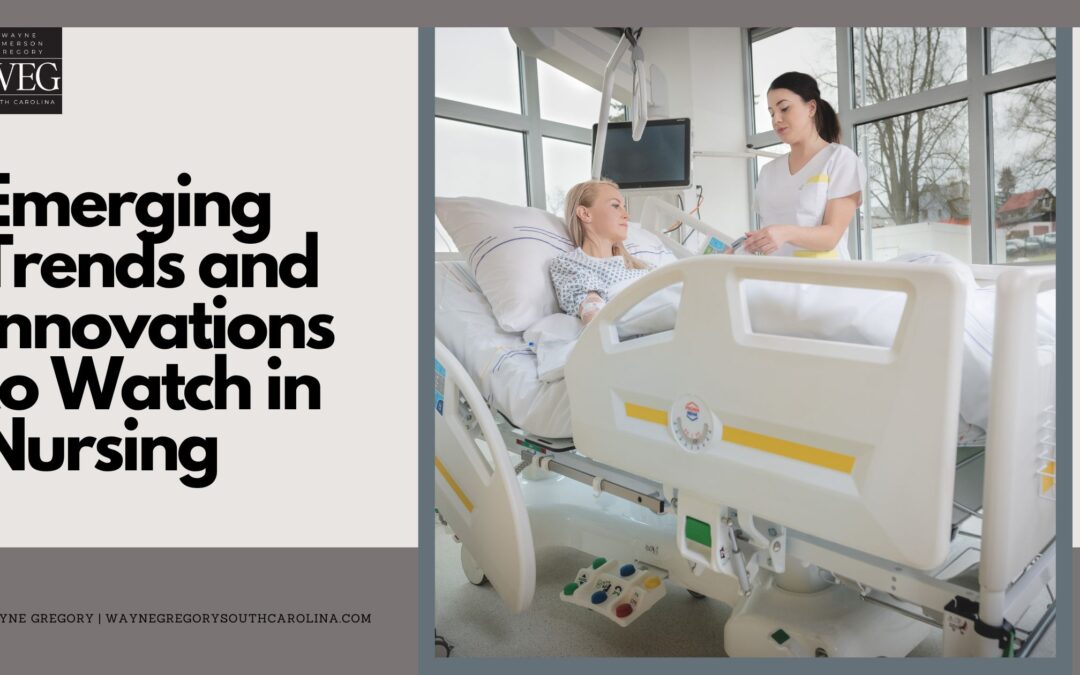Nursing is a dynamic field that constantly evolves to meet the changing needs of the healthcare industry. As technology advances and healthcare delivery models shift, new trends and innovations are emerging in nursing practice. These developments have the potential to revolutionize patient care, enhance efficiency, and improve outcomes.
1. Telehealth and Remote Patient Monitoring
Telehealth has gained significant momentum, especially in the wake of the COVID-19 pandemic. Nurses are increasingly utilizing telehealth platforms to provide remote patient care, conduct virtual consultations, and monitor patients’ health remotely. This technology allows nurses to reach patients in remote areas, reduce travel time and costs, and enhance access to care. Remote patient monitoring devices, such as wearable sensors and mobile applications, enable nurses to gather real-time data and track patients’ vital signs from a distance, promoting early intervention and proactive care management.
2. Artificial Intelligence and Big Data Analytics
Artificial intelligence (AI) and big data analytics are transforming nursing practice by analyzing vast amounts of patient data to identify patterns, predict outcomes, and inform decision-making. AI-powered tools, such as predictive modeling algorithms and machine learning algorithms, assist nurses in diagnosing diseases, developing treatment plans, and predicting patient outcomes. Additionally, AI chatbots are being utilized for patient education, symptom assessment, and triage services, providing immediate support and reducing the burden on healthcare professionals.
3. Personalized Medicine and Genomics
Advances in genomics and personalized medicine are revolutionizing patient care. Nurses are increasingly involved in integrating genetic information into patient assessment, treatment planning, and medication management. Genetic testing allows for tailored interventions and targeted therapies based on an individual’s genetic profile. Nurses play a crucial role in educating patients about genetic risks, supporting informed decision-making, and ensuring the safe and effective implementation of personalized medicine approaches.
4. Holistic and Patient-Centered Care
Nursing practice is shifting towards a more holistic and patient-centered approach. Nurses are recognizing the importance of addressing patients’ physical, emotional, and psychosocial needs to promote overall well-being. This includes providing culturally sensitive care, fostering effective communication and collaboration among healthcare teams, and integrating complementary and alternative therapies. Holistic care emphasizes the importance of patient empowerment, shared decision-making, and individualized care plans, ultimately improving patient satisfaction and outcomes.
5. Interprofessional Collaboration and Team-Based Care
Effective collaboration among healthcare professionals is crucial for delivering high-quality care. Nurses are increasingly working in interprofessional teams, collaborating with physicians, pharmacists, social workers, and other healthcare providers to ensure comprehensive and coordinated care. This team-based approach promotes seamless communication, enhances patient safety, and maximizes the expertise of each team member. Nurses are also taking on leadership roles within these teams, contributing their unique perspectives and expertise to improve patient outcomes and drive innovation.
As nursing embraces emerging trends and innovations, the profession is poised to play a pivotal role in shaping the future of healthcare. By staying informed and adaptable, nurses can embrace these changes and continue to provide exceptional care in an ever-evolving healthcare landscape.

